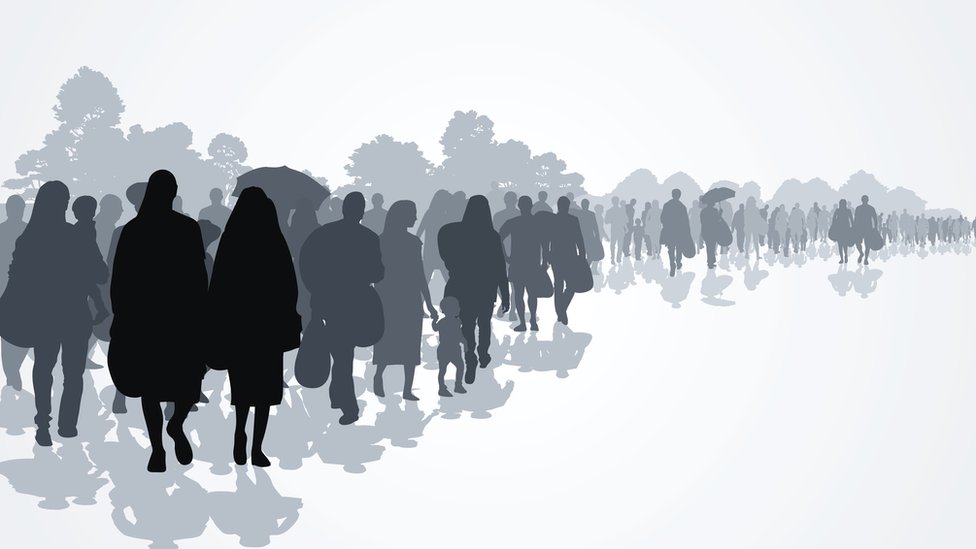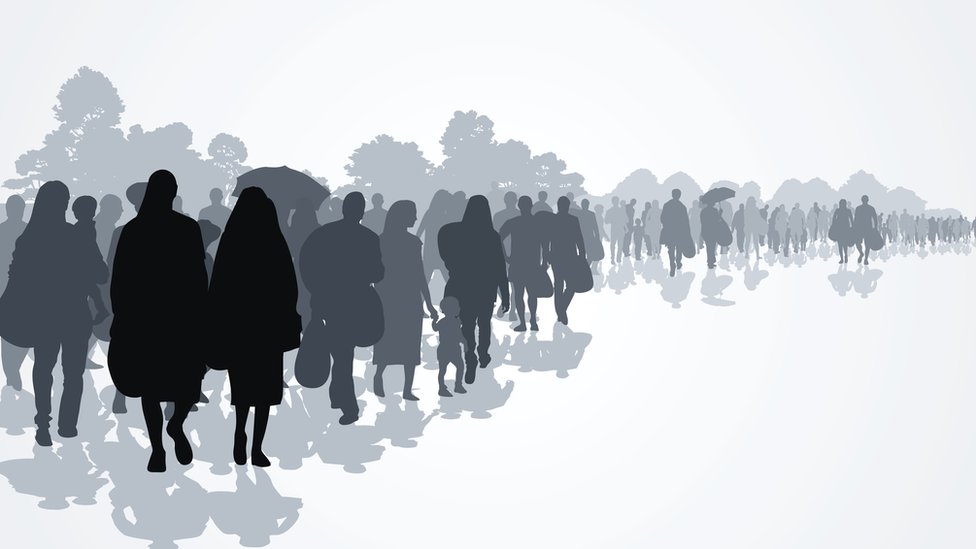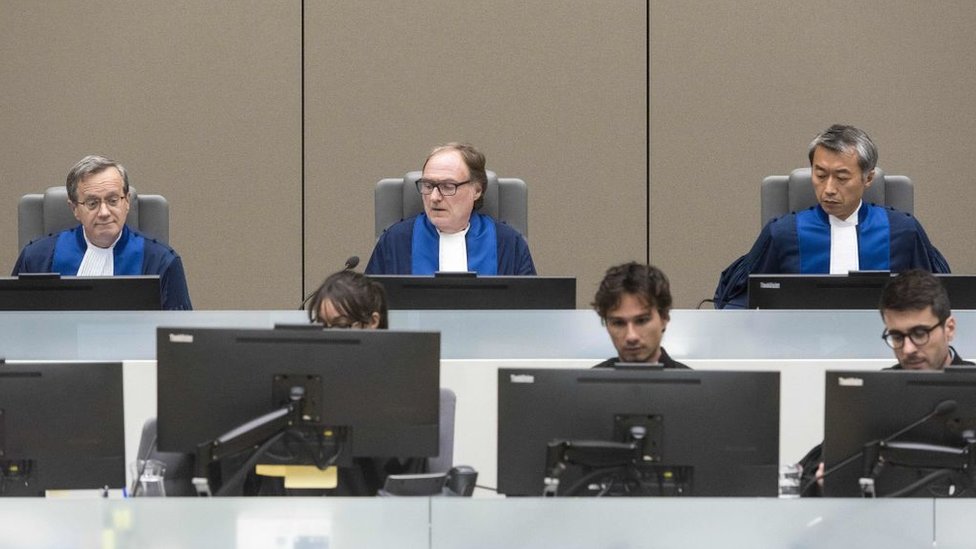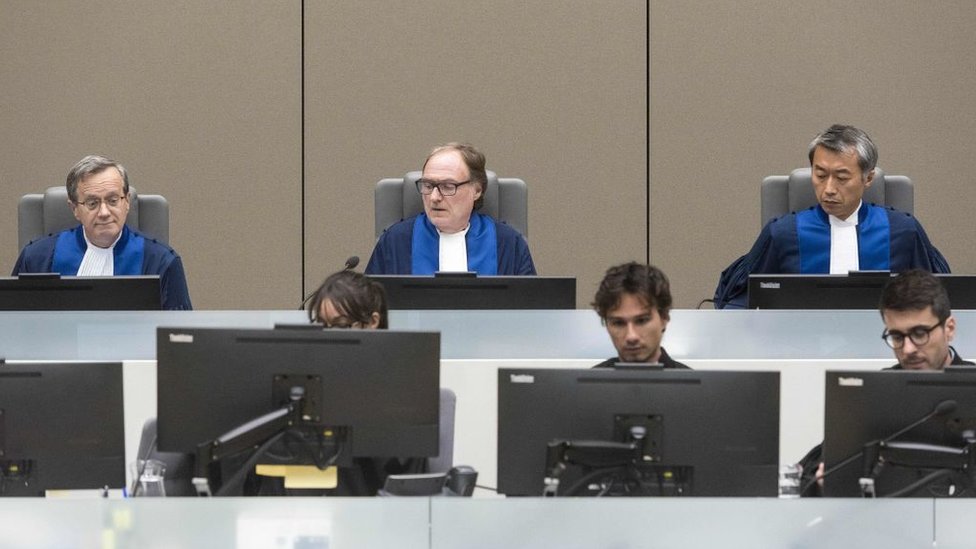But the famous Greek philosopher chose to die.
And this exile to be outside the city where he spent his life and the service to which he devoted himself was the worst punishment for him.
Had he chosen to leave, Socrates would have become stateless, a condition that the UN estimates affects millions of people around the world, and to which in recent weeks some 300 Nicaraguan opponents have been stripped of their citizenship by the authorities. this country.
According to the United Nations Refugee Agency (UNHCR), statelessness has a variety of causes, including discrimination against certain groups, often based on ethnic or religious differences or gender; the emergence of new states and the transfer of territory between existing states; loopholes in citizenship laws; and loss or deprivation of citizenship due to decisions taken by states.
In any case, it is a problem with serious consequences for the people who suffer from it, as they lose the right that serves as the basis for access to many other important rights that are taken for granted in today’s world.
According to the UNHCR, stateless people exist in almost every country and region in the world.
One of the most affected groups are the Rohingya., a predominantly Muslim minority that has been persecuted for decades in Myanmar, where they live. In their case, the state does not recognize them as citizens because it considers them migrants from Bangladesh.
The Rohingya, for their part, claim to be the descendants of Arab traders and have lived there for generations.
HE calculate that a million Rohingyas found refuge in Myanmar’s neighboring countries because of the persecution they face.
In Latin America, the most famous recent case of statelessness is that of tens of thousands of people born in the Dominican Republic. but they are not recognized as citizens because they are descendants of migrants, mostly Haitians.
In the case of the Nicaraguan opponents, the situation is different.
“Disproportionate” fine
On February 9, the Nicaraguan authorities released 222 opponents of the government of President Daniel Ortega who were in custody and HeorThey were “deported” to the United States, having previously been declared “traitors to the motherland.”deprivation of their Nicaraguan citizenship and indefinite deprivation of their civil rights.



A week later, February 16, 94 other opponents, many of whom were already living in exile, met the same fate.: they were declared traitors to the motherland, deprived of citizenship and permanently deprived of civil rights.
In addition, they were declared fugitives and ordered to confiscate the property and companies in which they had a stake.
Both measures were taken within the formal framework of criminal proceedings and became known as the decisions of the Nicaraguan courts. However, these actions are strongly questioned by human rights organizations and experts.
“We warn you that deportation in this case is completely inapplicable, because this is an immigration legal figure that applies specifically to foreigners who have committed crimes in this country. They call exile deportation, which is absolutely prohibited by all laws. and international human rights standards,” the Nicaraguan Center for Human Rights said in a statement after it became aware of the expulsion of a group of 222 opponents.
UNHCR, for its part, issued a statement expressing concern about what was happening in Nicaragua and recalling that international law prohibits “arbitrary deprivation of nationality racial, ethnic, religious or political grounds.”
BBC Mundo contacted the press office of the Nicaraguan judiciary to ask them about the allegations made in this article, but received no response.
Fernando Fernandez, an expert on international criminal law and professor at the Central University of Venezuela, notes that by making these opponents stateless and sending them into exile, The Nicaraguan authorities are passing a shameful verdict.
“They are not foreigners, and now they have been reduced to nothing and no one. The decision of the Nicaraguan authorities put them in a terrible position, as it left them in limbo, without any inquiries. No state will accept you if you do not have citizenship and therefore a passport. And you cannot go to your country because you are nothing, you are nobody. You keep your name, but disappear from the legal and administrative acts of the state.”, – says expert BBC Mundo.



“When you lose your citizenship, you lose your citizenship status. and a person recognized by law. You lose your citizenship and any connection with the land. What connects you to your land? what is called jus soli. The fact that he was born in the country,” he adds.
He explains that this punishment of exile was used by the absolutist kings and that it also existed in ancient Greek law, as is evident from the famous case of Socrates.
“It’s an infamous punishment because it sentences you to what the Romans called civil death., because you are disabled. The exile is left without land, without roots, without anything. In ancient times, it was terrible because you lost your attachment to the city and were left exposed to what wild animals or barbarians could do to you, ”he adds.
An unparalleled solution in the region
Tamara Tarachuk, director for the Americas of the NGO Human Rights Watch, emphasized how serious and unusual such measures are in the modern era.
“This decision is unprecedented in the recent history of Latin America. “Augusto Pinochet, the bloodthirsty dictator of Chile, did this to nine people — and this should be taken with a strong backlash by the region’s democratic leaders,” Tarachuk said in statements to New York Times.
Fernando Fernandez points out that perhaps some of the problems that these Nicaraguan adversaries will face could be alleviated if the offer of the Spanish government, which offered them their citizenship in solidarity, is implemented, although this does not eliminate the violation of the rights of which they were victims. .
“This proposal from the Spanish government softens the situation, but in fact does not erase crime, injustice or violation of basic human rights and it doesn’t solve the underlying situation. Leave your country in such a dramatic situation this illegal deportation entails psychological stress and emotional suffering. This is a very serious duel.”, he notes.



The expert notes that the world is moving away from this type of punishment because it is considered disproportionate.
“Modern criminal law strives for the reintegration of the individual. If you sentence someone to life exile, how and when will they return? Never.
“That is why modern criminal law strives to ensure that sentences are as short as possible within the historical and legal necessity of sentencing, and that they contribute to social reintegration. That is why life imprisonment is being reviewed in all countries where it exists at 20 or 25 years,” he assures.
“Where is the betrayal?”
Fernandez too questions that the Nicaraguan authorities ordered the confiscation of assets condemned opponents.
“Asset confiscation is linked to the most heinous crimes of mankind. It was what Lenin, Stalin and the communists did to people they considered bourgeois, and what Hitler did to the Jews. It is also an old sentence that no longer applies,” he claims.
It is indicated that the criminal law allows property penalties, but in the presence of economic crimes.
“If you are a drug dealer and you bought a house with drug money, they will confiscate your house. This is an additional penalty, depending on the main one. And that’s okay. But not here with issues like treason, which are absurd because there is no military situation in Nicaragua,” says Fernandez.
When is there change? When there is a declaration of war and an official battle between two countries. So, if you sell information to the enemy or join the enemy army of your country, you are a traitor to the country. But where is the betrayal in this situation?in which they used the media to speak badly of the government? This is not treason,” he notes.
According to the Nicaraguan judiciary, these people were convicted of “committing acts that undermine the independence, sovereignty and self-determination of the people; for inciting violence, terrorism and economic destabilization.”
Crime against humanity?
In view of what has happened, Fernandez believes that Nicaraguan opponents can turn to international bodies.



“This grossly violates the very Constitution of Nicaragua.which establishes citizenship as a right in its Article 20 and violates the American Convention on Human Rights, which states that everyone has the right to citizenship and that no one shall be arbitrarily deprived of it,” he notes.
On this basis, the expert believes that victims can apply to the Inter-American Commission on Human Rights -even if Nicaragua is no longer part of the OAS- but he also believes that they could send a message to the International Criminal Court, as he believes that there are elements for an investigation into the possible commission of a crime against humanity.
He explains that the Rome Statute establishes that acts that may constitute crimes against humanity must be carried out through systematic attacks on the civilian population.
“Here we have a systematic attack on the civilian population. and two of transgress mepending: persecution and deportation illegitimate groups or communities with their own identity based on political motives,” he concludes.
remember, that you can receive notifications from BBC Mundo. Download the new version of our app and activate them so you don’t miss out on our best content.
Source: La Opinion
Alfred Hart is an accomplished journalist known for his expert analysis and commentary on global affairs. He currently works as a writer at 24 news breaker, where he provides readers with in-depth coverage of the most pressing issues affecting the world today. With a keen insight and a deep understanding of international politics and economics, Alfred’s writing is a must-read for anyone seeking a deeper understanding of the world we live in.
